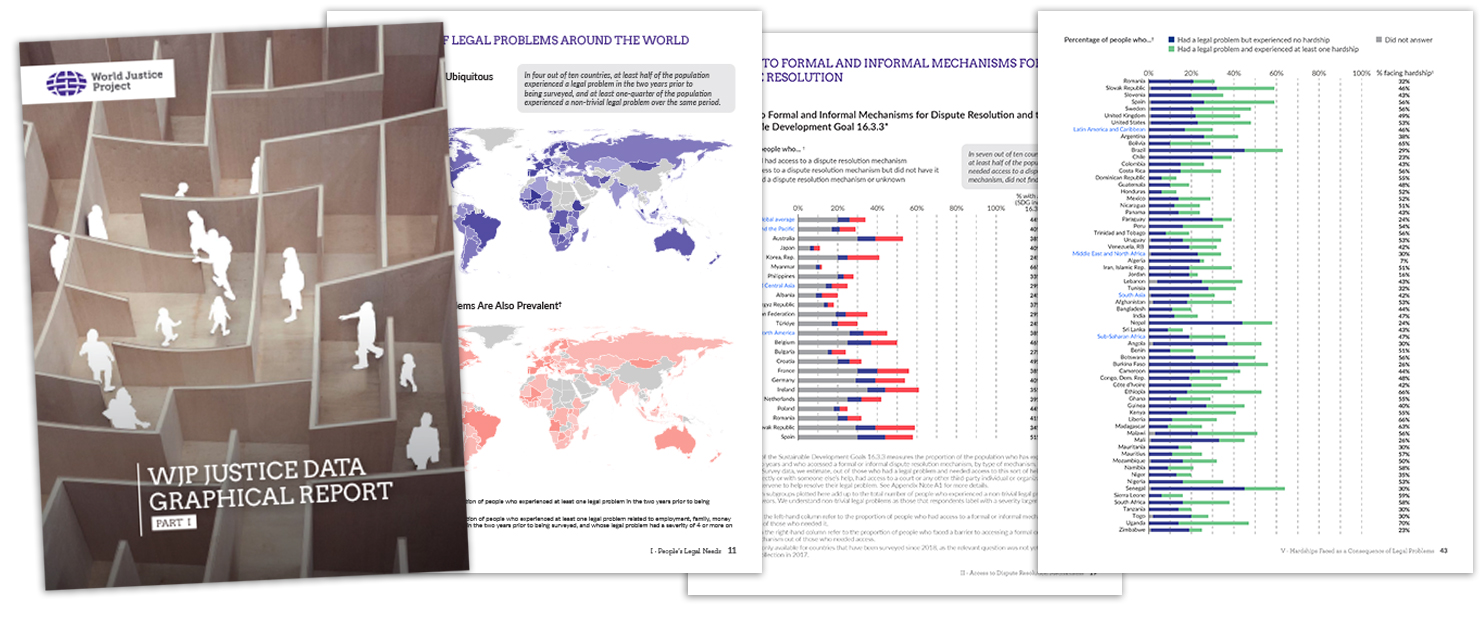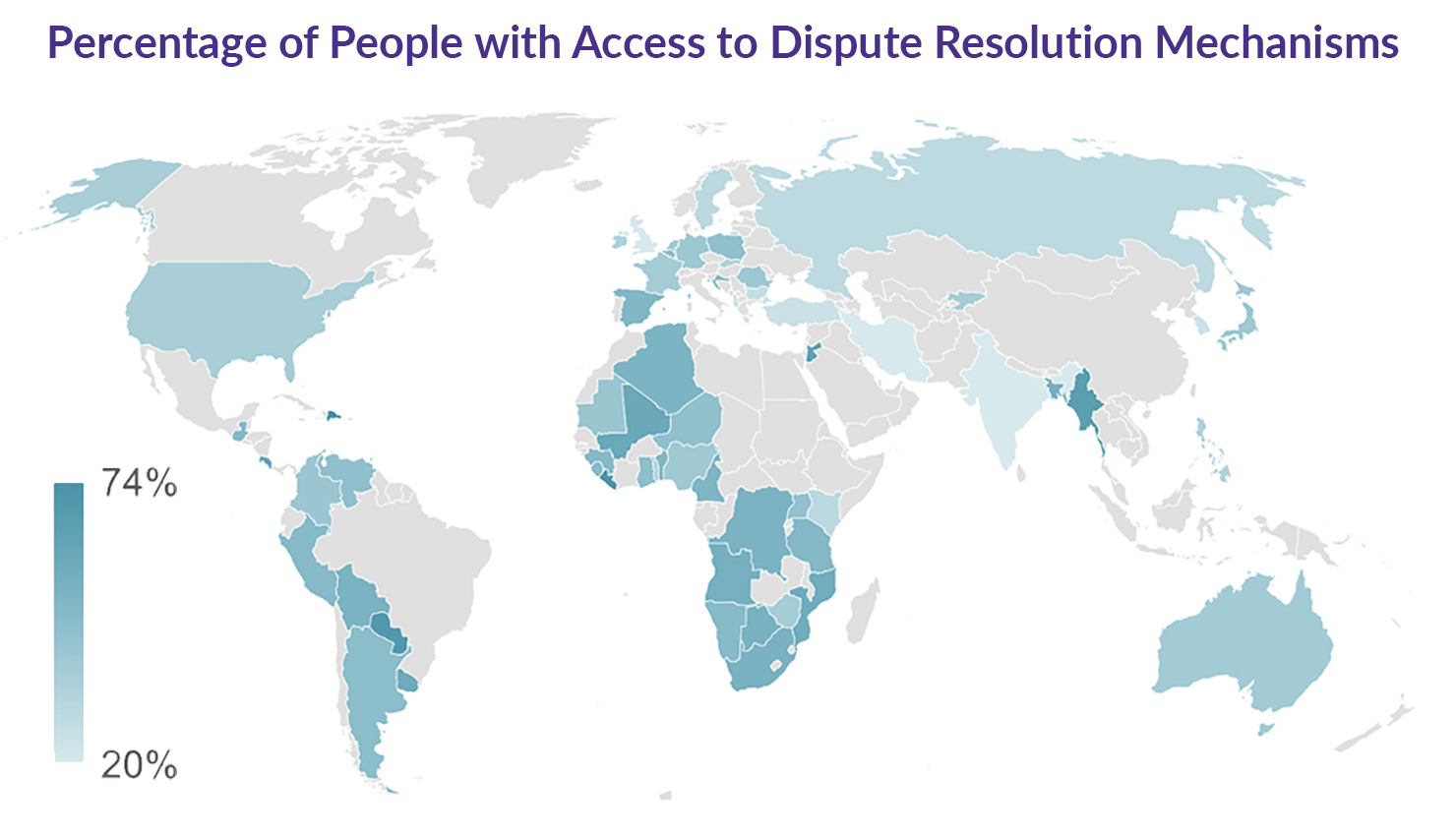

Globally, 1.4 billion people have unmet civil justice needs and fall within the justice gap. Now, the World Justice Project has broken the justice gap down into country-level estimates and analysis for 104 countries in the just released WJP Justice Data Graphical Report Part I.
The new graphical report is the first to measure how more than 60 countries are performing on the United Nations Sustainable Development Goals 16.3.3 indicator, based on WJP’s global legal needs survey. This research will give governments, international organizations, donors, and civil society new tools to prioritize people-centered justice reforms. The report was unveiled during United Nations High-Level Political Forum for Sustainable Development events in New York.
Key findings from Part I of the report show that in four out of 10 countries surveyed, at least half the population experienced a legal problem in the two years prior to being surveyed, and in half of the observed countries, at least 50 percent of people have unmet civil justice needs (i.e. are in the justice gap).
One of the drivers of this justice gap is a lack of access to justice services beyond formal and informal dispute resolution mechanisms. This means people could not find adequate information to solve their legal issue, did not have access to appropriate assistance and representation, and/or they struggled to afford the costs incurred trying to solve their legal problem.

As previous research shows, many justice needs are common across regions and countries, including problems with housing, land, money and debt, public services, family, and employment. Justice problems have significant individual, community, and societal costs, with disproportionate impacts falling on marginalized and vulnerable groups including women, children, and persons with disabilities.
According to the findings in the graphical report, legal problems that cause hardships for people can also have broader consequences for economic development. On average, the economic costs of legal problems for individuals, arising from lost income, health issues, or the resolution of such problems amount to 1.7% of Gross Domestic Product (GDP). The report’s country-level estimates range from a low of 0.1% to more than 5%.
Part II of the report is expected to be released in advance of the September 2023 SDG Summit and will dig deeper into the gender and wealth-based disparities in justice outcomes, the effect of COVID-19 on access to justice, as well as the capacity and integrity of justice institutions.
Read the WJP Justice Data Graphical Report Part I.






